Putting the Pieces Together:
Disability, Childhood, and the Early Years
In this edition of the LINC Blog, Professor Bronagh Byrne, Co-Director of the Centre for Children’s Rights at Queen’s University Belfast, explores the intersection of childhood, disability and early years through a powerful rights-based lens. Drawing on the UNCRC and UNCRPD, she challenges us to move beyond a one-size-fits-all view of young children and to reflect on how assumptions about age, capacity and disability can shape access to rights and inclusive practice.
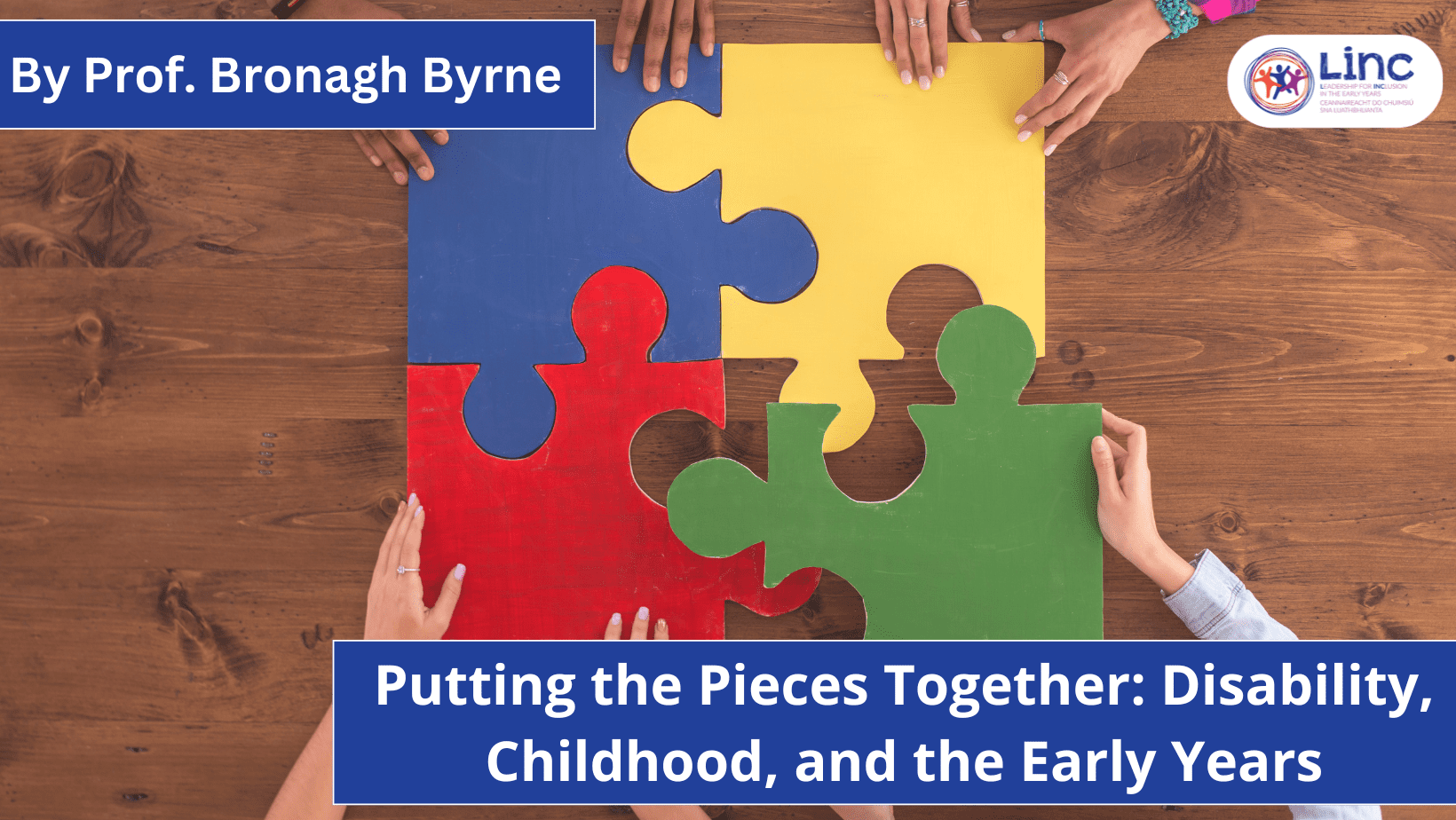
In 2009, Beitz, a legal scholar, argued that ‘rights are not supposed to be pointless; they are supposed to yield reasons for action.’ The language of rights has gradually permeated early childhood education across the globe. This has been followed by growing commitment to rights-based practice, particularly when it comes to participation of young children. This has been so exciting to see as a children’s rights researcher. Undoubtedly this has been accompanied by both welcoming and difficult conversations as we seek to evidence what it means to view and interact with young children as rights-holders in a meaningful way.
Many of us are guilty however, of viewing young children through a monolithic lens, with less attention being paid to the intersectionality of early years with other identity categories. One such category is disability. Intersectionality as currently practiced in relation to young children with disabilities can be viewed more like a jigsaw – we have all the pieces in isolation but perhaps are less confident of how to put all the identity ‘pieces’ together. Children with disabilities have traditionally been silenced by discourses of both disability and childhood, with the former focusing on adult priorities and the latter on the ‘mainstream’ child.
As we know, children and childhoods are not homogenous, and a young child will have very different experiences to an older child. Young children with disabilities experience double discrimination or double jeopardy – on the grounds of age and on the grounds of disability which produces additive experiences of discrimination. But they also experience intersectional discrimination – discrimination arising from distinct experience as a child with a disability and in today’s context as a YOUNG children with a disability in early years – different from other young children without disabilities, different from older children and different from other children with disabilities. The multiple intersectionalities that children with disabilities can experience beyond this has been given less attention.
This perspective is inversely related to both age and the severity of impairment; the more complex and visible a child’s disability may be, combined with the younger they are, the less capacity they are perceived to have and the more they are likely to experience discrimination. Societal perceptions of capacity can thus place boundaries on how adults view and work with children with disabilities as well as which children with disabilities to work with. For a long time, it has been assumed that young children with disabilities are not in need of rights and that that the focus should be on protection, treatment and care. In this vein, rights indeed have been understood as ‘pointless’ for this group of children.
The adoption of the UN Convention on the Rights of Persons with Disabilities in 2006, alongside the UNCRC, provides a critical framework for understanding the lived experiences of young children with disabilities and ensuring that rights become pointed and yield clear reasons for action. Yet more attention continues to be paid to the UNCRC than the UNCRPD when it comes to the value of rights for children under the age of 18, including those in early years. While the UNCRC has been granted the gift of time that has allowed it to become embedded in policy frameworks, the UNCRPD has been in force now across the globe for almost 20 years (albeit only ratified in Ireland in 2018). Rights for young children with disabilities are not à la carte – they come as a package of entitlements. While the UNCRPD, like the UNCRC, was drafted by adults, it was at least drafted by adults with disabilities, providing nuanced technical input into the myriad of ways in which society disables people who have impairments. It is also noteworthy that, in contrast to the UNCRC, the UNCRPD treaty text makes no references to ‘special needs’ or ‘special care’. This was deliberate. Whilst often using as a means of determining access to services and supports, the concept of ‘special’ can be understood as negative form of othering and a form of ableist terminology.
If we are committed to supporting the rights of young children with disabilities, and ensuring they don’t become pointless, it is vital that we use both the UNCRC and UNCRPD in our work. To use one and not the other is to devalue the complex intersectionality between childhood and disability that shapes children’s lives.
References:
Beitz, C. (2009), The Idea of Human Rights Oxford University Press.
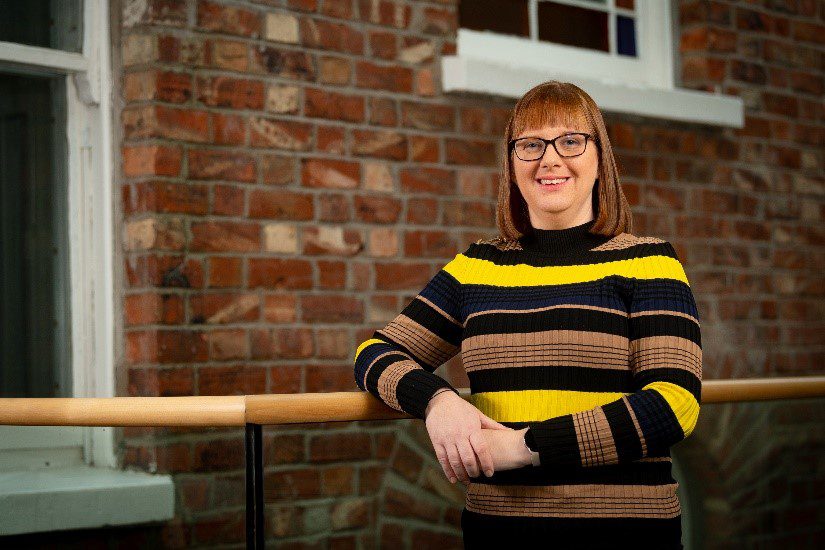
Professor Bronagh Byrne
Co-Director, Centre for Children’s Rights, Queen’s University Belfast
Bronagh Byrne is a profoundly deaf academic who is Professor of Disability and Children’s Rights at Queen’s University Belfast. She is Co-Director of the globally recognised Centre for Children’s Rights at Queen’s. Bronagh’s research expertise is on the rights of children and young people with disabilities and the right to inclusive education in particular. She has published extensively in these areas and conducted research for Council of Europe, Terre des Hommes, UNICEF, European Commission, and public bodies such as NI Commissioner for Children and Young People and the Equality and Human Rights Commissions. She is a member of UNICEF Innocenti’s Advisory Group on the Global Research Agenda for Children with Disabilities and the Editorial Board of the International Journal of Disability and Social Justice. Bronagh is also the proud partner of Hearing (assistance) Dog Robyn.
You may also like:
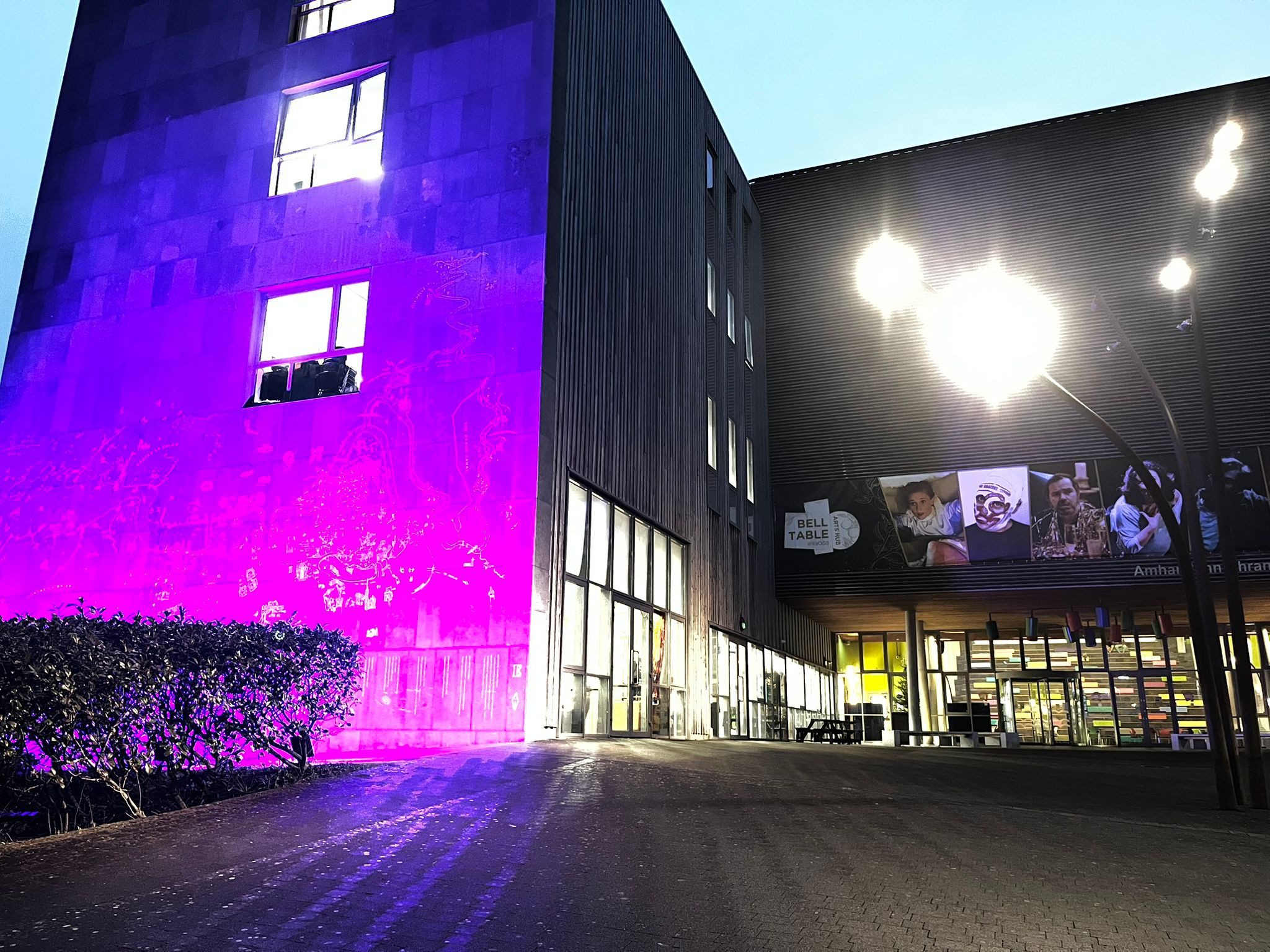
LINC Shines a Light on Inclusion for the International Day of Persons with Disabilities 2025
LINC Shines a Light on Inclusion for the International Day of Persons with Disabilities 2025 The Leadership for INClusion in the Early Years (LINC) Programme marked the United Nations International Day of Persons with Disabilities (IDPD) this evening by illuminating...
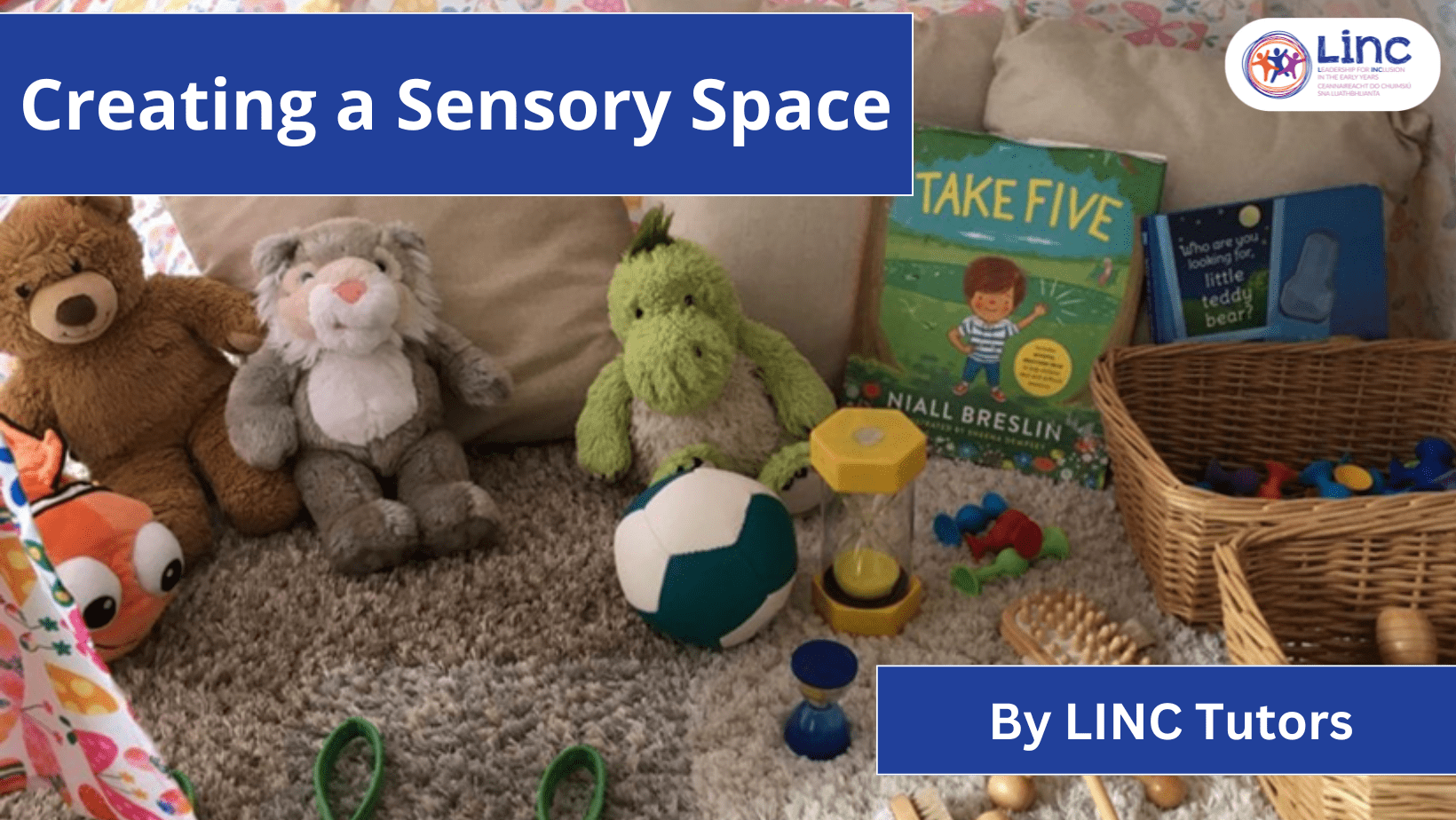
Creating a Sensory Space
Creating a Sensory Space In this edition of the LINC blog, Claire Butterly, Karina Abbott, Ann Donnellan, Carole Dee, Linda Madden, Margaret Joyce and Paula Harte highlight some considerations when planning a sensory space in your Early Learning and Care setting....
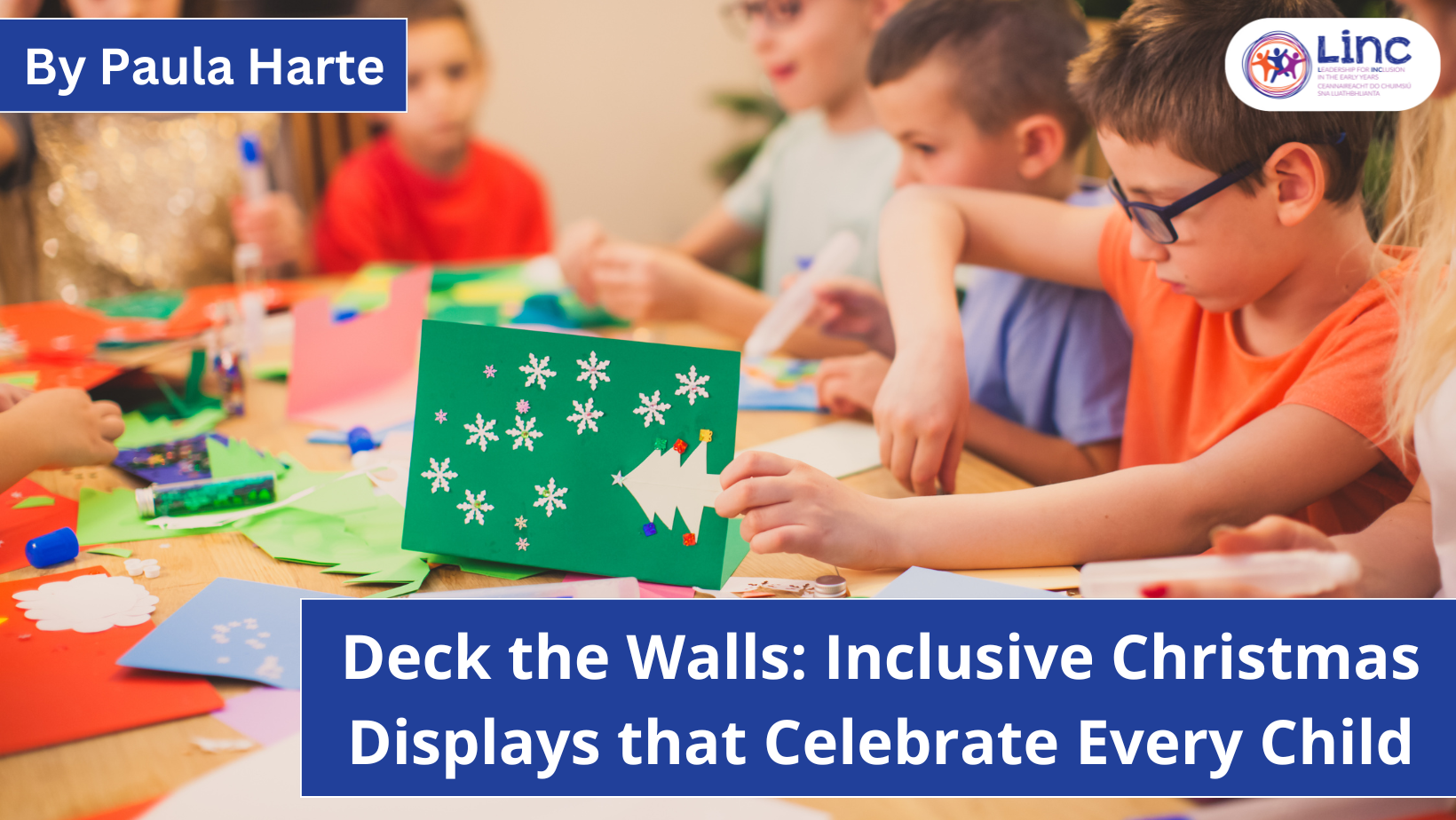
Deck the Walls: Inclusive Christmas Displays that Celebrate Every Child
Deck the Walls: Inclusive Christmas Displays that Celebrate Every Child In this edition of the LINC Blog, former LINC Tutor Paula Harte explores how Christmas displays can bring warmth, creativity, and connection to Early Learning and Care (ELC) and School-Aged...
